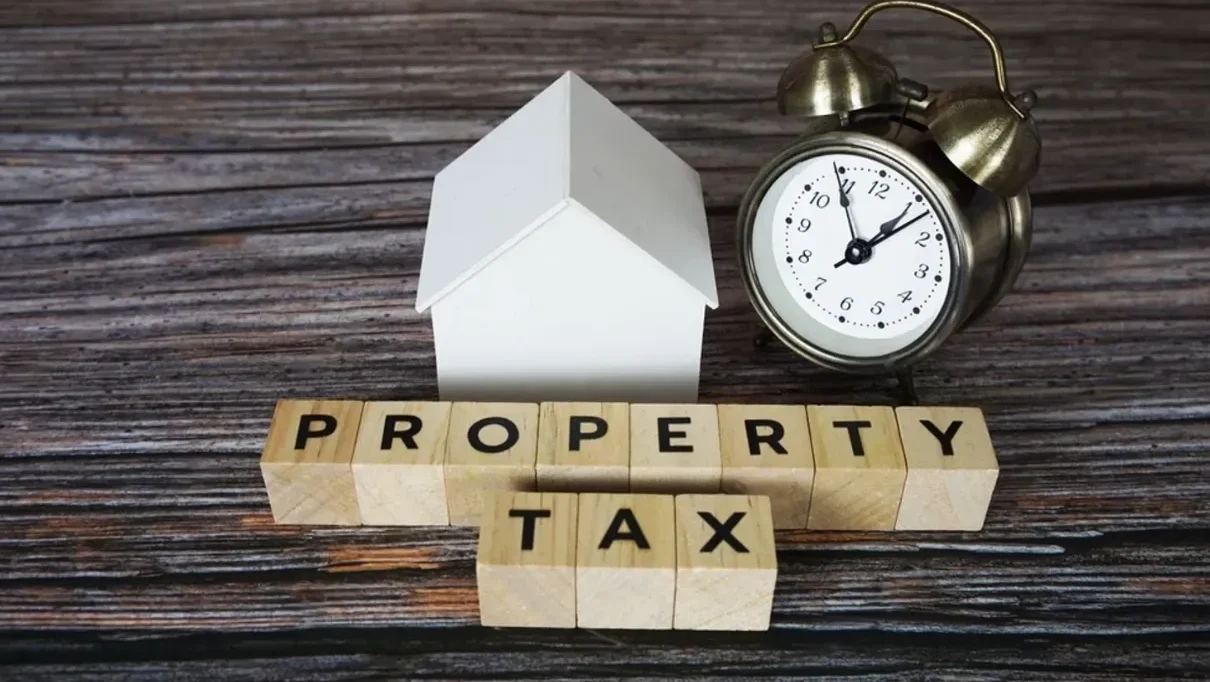
Property taxes are a significant expense for homeowners and commercial property owners alike. They’re often one of the largest annual costs associated with owning real estate, and if your property is overvalued by your local appraisal district, you could be paying more than your fair share. Fortunately, a property tax consultant can help you navigate the complex world of property tax assessments and potentially save you hundreds or even thousands of dollars. Here’s a comprehensive guide on how hiring a property tax consultant can lead to substantial savings, why it’s worth considering, and what you can expect from the process.
Understanding Property Taxes and Overvaluation
Before diving into the role of a property tax consultant, it’s important to understand why property taxes can sometimes be unfairly high. Property taxes are based on the assessed value of your property, as determined by your county’s appraisal district. This value is supposed to reflect the fair market value—what your property would sell for under normal market conditions. However, appraisal districts often rely on outdated data, incomplete information, or broad valuation models that don’t account for the unique characteristics of your property.
For example, if your home has specific issues like foundation problems, outdated fixtures, or other factors that reduce its market appeal, the appraisal district might not factor these in. Similarly, commercial properties might be valued based on incorrect square footage or zoning assumptions. When your property is overvalued, your tax bill is higher than it should be. A property tax consultant specializes in identifying these discrepancies and challenging the appraisal to secure a lower, more accurate valuation.
The Role of a Property Tax Consultant
A property tax consultant is a professional who specializes in property tax appeals and assessments. They have in-depth knowledge of local tax laws, appraisal processes, and market trends. Their primary goal is to ensure your property is assessed fairly, which can lead to a reduced tax bill. Here’s how they achieve this:
1. Guiding You Through the Protest Process
The process of protesting your property tax assessment can be daunting, especially if you’re unfamiliar with the legal and procedural requirements. A consultant acts as your guide, explaining each step in clear terms. They’ll help you understand your rights as a taxpayer, provide the necessary forms, and ensure you know how to contact your county appraisal district. This initial support is crucial for avoiding common pitfalls, such as missing deadlines or submitting incomplete documentation.
For example, in many states, you have a limited window—often 30 to 45 days after receiving your appraisal notice—to file a protest. A consultant ensures you’re prepared well in advance, giving you peace of mind and a clear path forward.
2. Ensuring Timely and Accurate Protest Filing
Missing the protest deadline can lock you into paying an inflated tax bill for the year. Consultants are meticulous about deadlines, ensuring your protest is filed on time and with all required documentation. They also verify that the protest is submitted correctly, reducing the risk of rejection due to technical errors. This attention to detail can make the difference between a successful appeal and a missed opportunity.
3. Collecting and Analyzing Property Data
To build a strong case, a consultant gathers detailed information about your property. This includes public records, such as recent sales of comparable properties, as well as any documents you provide, like repair estimates or photos of property damage. They’ll also review the appraisal district’s records to identify errors, such as incorrect square footage, misclassified property types, or failure to account for exemptions you’re entitled to.
For instance, if your home is listed as having four bedrooms when it only has three, or if the appraisal doesn’t reflect recent storm damage, a consultant will flag these issues. By presenting a complete and accurate picture of your property, they lay the groundwork for a compelling appeal.
4. Developing a Market-Based Strategy
One of the most powerful tools a consultant uses is a market-based approach to valuation. They analyze comparable sales—properties similar to yours in size, location, and condition—that have sold recently. This data helps establish what your property is truly worth in the current market. Consultants also consider local valuation methods and trends, such as whether the appraisal district is overvaluing properties in your neighborhood due to gentrification or other factors.
For example, if similar homes in your area sold for $300,000 but your home is assessed at $350,000, a consultant will use this discrepancy to argue for a lower valuation. Their expertise in interpreting market data ensures your case is grounded in evidence that’s difficult for the appraisal district to dispute.
5. Representing You at the Appraisal Review Board Hearing
The culmination of the protest process is the Appraisal Review Board (ARB) hearing, where you present your case to a panel of impartial reviewers. A consultant can represent you at this hearing, sparing you the stress of preparing and presenting the case yourself. They’ll organize your evidence, deliver a clear and persuasive argument, and respond to any questions or challenges from the board. After the hearing, they’ll report the outcome to you and advise on next steps if further action is needed.
This representation is particularly valuable because hearings can be intimidating, and the board often expects a high level of professionalism and preparation. A consultant’s experience ensures your case is presented in the best possible light.
How These Efforts Translate to Savings
The ultimate goal of hiring a property tax consultant is to reduce your property’s assessed value, which directly lowers your tax bill. Here’s how the savings add up:
- Lower Assessed Value: If your consultant successfully reduces your property’s valuation, your tax bill decreases proportionally. For example, if your property’s assessed value drops from $400,000 to $350,000 and your local tax rate is 2%, you’d save $1,000 annually ($50,000 x 0.02).
- Avoiding Overpayment Year After Year: A successful protest doesn’t just save you money in the current year; it can prevent overpayment in future years, as appraisal districts often base future valuations on prior assessments.
- Maximizing Exemptions: Consultants can identify exemptions you may not be aware of, such as homestead exemptions, senior citizen discounts, or veteran benefits. These exemptions can further reduce your taxable value.
- Preventing Penalties: By ensuring timely and accurate filings, consultants help you avoid penalties or missed opportunities that could cost you more.
Real-World Examples of Savings
To illustrate the potential impact, consider these hypothetical scenarios:
- Residential Homeowner: Jane owns a home assessed at $500,000, but she believes it’s worth closer to $450,000 due to recent market trends and minor property damage. Her consultant files a protest, presents evidence of comparable sales, and secures a $50,000 reduction. At a 2.5% tax rate, Jane saves $1,250 per year.
- Commercial Property Owner: Mike owns a small office building assessed at $2 million, but similar properties in the area sold for $1.8 million. His consultant identifies errors in the appraisal district’s square footage calculations and wins a $200,000 reduction. At a 3% tax rate, Mike saves $6,000 annually.
These savings can be reinvested into home improvements, business operations, or other financial goals, making the consultant’s fee well worth the investment.
Why Hire a Consultant Instead of Going It Alone?
While it’s possible to protest your property taxes on your own, the process is time-consuming, complex, and prone to errors. Here are some reasons why a consultant is a smarter choice:
- Expertise: Consultants have specialized knowledge of tax laws, appraisal methods, and local market conditions, giving them an edge in building a strong case.
- Time Savings: Researching comparable sales, gathering documents, and preparing for a hearing can take dozens of hours. A consultant handles these tasks efficiently, freeing up your time.
- Higher Success Rate: Studies suggest that professional representation increases the likelihood of a successful protest. Consultants know how to present evidence persuasively and navigate the ARB’s expectations.
- No Upfront Cost in Many Cases: Many consultants work on a contingency basis, meaning they only get paid if they save you money. Their fee is typically a percentage of your tax savings, aligning their interests with yours.
How to Choose the Right Property Tax Consultant
Not all consultants are created equal, so it’s important to do your due diligence. Here are some tips for selecting a reputable professional:
- Check Credentials: Look for consultants with certifications, such as those from the National Association of Property Tax Professionals, or a proven track record in your area.
- Ask About Experience: Choose someone familiar with your county’s appraisal district and local market conditions.
- Understand the Fee Structure: Clarify whether the consultant charges a flat fee or a contingency fee, and ensure you’re comfortable with the terms.
- Read Reviews: Check online reviews or ask for references to gauge the consultant’s reputation and success rate.
Common Misconceptions About Property Tax Consultants
Some property owners hesitate to hire a consultant due to myths or misunderstandings. Let’s debunk a few:
- “It’s Too Expensive”: As mentioned, many consultants work on contingency, so you only pay if they succeed. Even with a fee, the savings often far outweigh the cost.
- “I Can Do It Myself”: While DIY protests are possible, they’re less likely to succeed without the expertise and resources a consultant brings.
- “Protesting Will Raise My Taxes”: A protest can only lower your assessed value or leave it unchanged—it cannot result in a higher valuation.
Taking the First Step
If you’re ready to explore how a property tax consultant can save you money, start by reviewing your latest appraisal notice. Look for discrepancies, such as an assessed value that seems higher than recent sales in your area. Then, reach out to a reputable consultant for a consultation. Many offer free initial assessments to determine whether a protest is worth pursuing.
By hiring a property tax consultant, you’re not just saving money—you’re taking control of your financial future and ensuring you’re treated fairly as a taxpayer. With their expertise, you can navigate the protest process with confidence and keep more of your hard-earned money in your pocket.
Disclaimer: Property tax laws and procedures vary by state and county. Always consult with a qualified professional to understand your specific situation. For more information, contact your local appraisal district or a licensed property tax consultant.
You Might Also Like
Popular Categories
Popular News

Collin County News
McKinney Planning & Zoning Commission Recommends Expansion of Aster Park with 300 New Homes June 13, 2025
Collin County News
Celina Approves $11.87 Million Phase 1 Contract for Wilson Creek Park June 13, 2025
Flower Mound - Highland Village - Argyle
Walmart Health & Wellness Expands Access to Care Across Texas, Including North Texas Communities June 11, 2025
Collin County News
Plano’s Asphalt Overlay Projects Resume, Signaling Continued Investment in Infrastructure June 11, 2025
Collin County News
Celina Greenlights 49 New Homes at The Parks at Wilson Creek June 9, 2025
Grapevine - Colleyville - Southlake
🚌 Carroll ISD Offers Discounted 2025–26 Bus Passes Through July 14 June 9, 2025
Collin County News
McKinney Approves Zoning for 785-Acre Billingsley Development, Paving Way for Major Growth June 6, 2025
Collin County News
Celina Plans 130 New Homes as Growth Continues Across North Texas June 4, 2025










